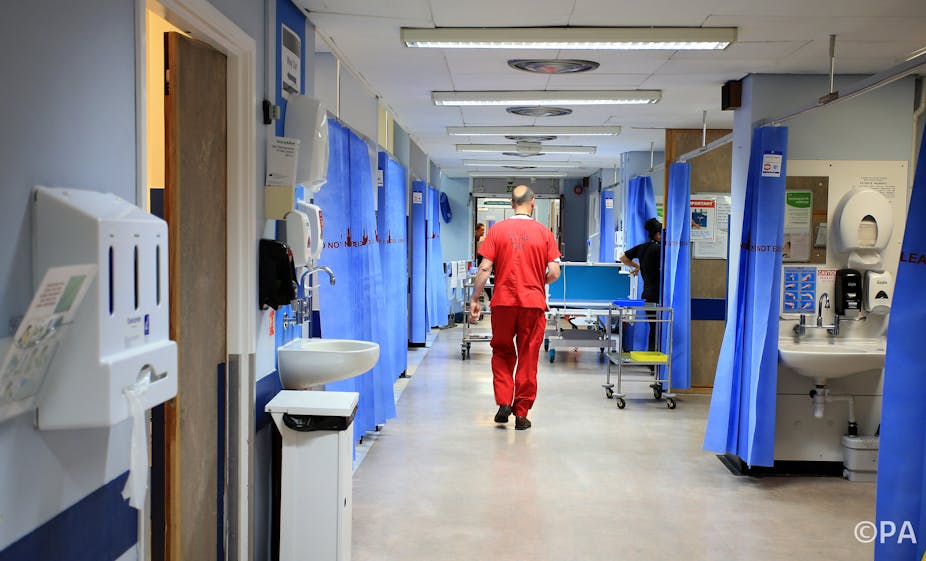The problems currently crippling the NHS and social care are not happening in a vacuum. The A&E crisis and the critical lack of beds are related to politicians’ love for large-scale, rapid and untested structural change.
There are several contributory factors, but the recent huge organisational upheaval is surely one of them. Our public sector has long been prey to this disease, dubbed “re-disorganisation” by political scientist Christopher Pollitt. In a superb article way back in 2007, he pointed out that there had been serial, breathless restructuring across a number of departments – especially in education and health.
Re-disorganisation
Pollitt highlighted that the NHS had been in a state of permanent revolution for a quarter of a century, and comparative studies showed the UK to have been the most activist and hard-driving of comparable countries regarding public sector reform. The relative lack of constitutional checks and balances, he wrote, meant “the British system maximises the temptation to reorganise but minimises political penalties for so doing.”
Since then the pace of re-disorganisation has become even more rapid. There has been no recognition that constant turbulence doesn’t make for good outcomes. In particular we have had the Academies Act 2010 and the Health and Social Care Act 2012. These have thrown the education and healthcare systems into confusion and disarray, promoted market-oriented fragmentation and alienated large sections of the relevant workforces.
When it comes to staff alienation, the reforms may now have exceeded the limits of political acceptability. It appears the penalties Pollitt noted are no longer minimal: they have become significant.

The men who drove the two sets of radical changes, Andrew Lansley and Michael Gove, have both suffered demotion because of the political backlash. There is now a chance for politicians to focus more on things that really make a difference but are less newsworthy, such as providing enough doctors, nurses, hospital beds, teachers, school places and opportunities for high-quality staff training and development.
Structures matter
But that doesn’t mean restructuring can be forgotten. Whatever the political fallout of these massive changes to the education and health systems under the coalition, they are with us and we are living with their often toxic legacy.
Several recent events, such as the so-called Trojan Horse saga concerning certain schools in Birmingham, suggest that the new school structures may be unsustainable. The National Audit Office has been highly critical of the present arrangements for oversight of schools.
Organisation always matters. Professionals and other staff cannot give of their best nor can patients and parents make sensible choices and exert proper influence when faced with fragmented, opaque and contradictory frameworks.
Key principles
The forthcoming report on the management of the NHS by former Marks and Spencer chief Stuart Rose for the government is apparently expected to say that the health changes have produced an over-complex structure which is quashing initiative and leading to poor practices. What doesn’t work in the new set-ups will have to be fixed.
Beyond this we need to work towards more stable, coherent and intelligible systems. Instead of schemes dreamt up by partisan think-tanks being foisted on the public at every change of government – sometimes, as in the healthcare case, without warning – staff and users should be involved in the design. Pilots should be run and independently planned and evaluated. And the larger the restructuring project, the more time should be allowed for its full implementation.
None of these elementary principles has been applied in the successive upheavals that have taken place since the late 1980s, all of which have been driven largely by political imperative, including the electoral timetable. As a result the whole process has been highly dysfunctional and a fundamental rethink is surely overdue.
To read more in our A&E crisis series: Graeme Currie on why we can’t simply scapegoat hospital managers; Jonathan Shapiro on whether we all take a free NHS for granted; Anthea Wilson on how monitoring our own conditions could transform NHS care; and Terry Young on how the NHS could use computer modelling to solve complex problems.

